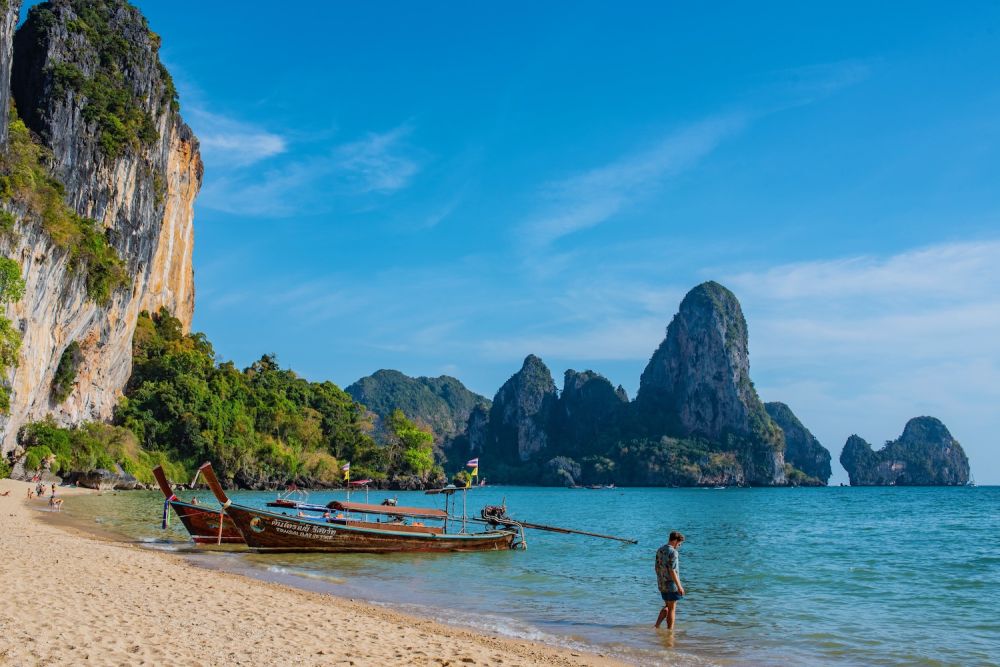

Krabi, a province on the west coast of southern Thailand, is renowned for its stunning natural beauty, which includes dramatic limestone cliffs, dense mangrove forests, and more than a hundred offshore islands. Its history with tourism is relatively recent in comparison to many other historic destinations around the world, tracing back to the late 20th century.
Tourism in Krabi began to develop in the 1980s as adventurers and backpackers searched for untouched paradises. The breathtaking scenery was soon featured in films and travel documentaries, which caught the eye of international travelers. Places like Railay Beach, Phi Phi Islands, and Koh Lanta quickly became synonymous with exotic travel destinations.
Key to the province's tourist development was the establishment of the Hat Noppharat Thara - Mu Ko Phi Phi National Park in 1983, which helped to conserve the area's natural beauty and, in turn, made it even more attractive to tourists.
By the 1990s, Krabi was firmly on the global tourism map. The 2000 film "The Beach," starring Leonardo DiCaprio, filmed on the nearby Phi Phi Islands, catapulted Krabi to fame, leading to a significant increase in tourism. Its popularity continued to grow, with the province developing infrastructure to cater to a diverse range of tourists, from luxury travelers to eco-tourists and adventure seekers.
With the 21st century, Krabi saw the enhancement of its airports and the improvement of land transportation, making it more accessible than ever. Tourists can now choose from a variety of accommodation options, ranging from budget hostels to premium resorts within the province.
In recent years, trends in Krabi's tourism have leaned towards sustainable travel and eco-friendly tours. Tourists are increasingly attracted to activities such as rock climbing, kayaking through mangrove forests, and scuba diving in an environmentally responsible manner.
Today's travelers also seek immersive cultural experiences, from local cooking classes to participating in community-based tourism projects. This shift to a more holistic tourism approach aligns with Thailand's broader strategy to promote responsible tourism that benefits both visitors and locals alike.
Despite challenges such as the global COVID-19 pandemic, which hit the tourism industry hard, Krabi remains a resilient and attractive tourist destination. Efforts to revitalize tourism include the implementation of health and safety protocols and the promotion of domestic travel within Thailand. As international travel norms continue to evolve, Krabi's tourism sector is adapting to meet the new expectations of global travelers.
In conclusion, the history of tourism in Krabi is a story of transformation from seclusion to global recognition, characterized by the natural allure and the welcoming spirit of Thailand. Its progression has mirrored the changing tastes and sensibilities of tourists who are increasingly valuing sustainability and cultural authenticity.